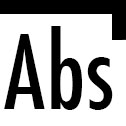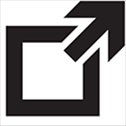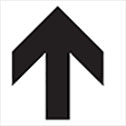
As the faculty of the Museum Studies Program at Indiana University-Purdue University Indianapolis (IUPUI), we are fortunate to be part of a small but vibrant intentional community formed around our shared dedication to civic engagement, interdisciplinary collaboration, and public scholarship. The nature of our daily work is hybrid, and so are the routes that we've taken to arrive where we are today. This issue of Public provided a welcome opportunity for us to examine our different professional backgrounds. Although our varied experiences shape our teaching and research and come up in conversation when we make group decisions about our program, we do not usually have the luxury of reflecting on our intersecting career paths. Looking closely at the routes that lead to and through our hybrid careers reveals an intricate combination of personal commitments, professional identity, larger goals, and broader perspectives.
Of the six core Museum Studies faculty members, five of us hold positions with the explicit title, "Public Scholar." Many of us have dual appointments, which spread our teaching, research, and service responsibilities across departments, and, in some cases, across schools. Two of us are additionally linked by formal partnerships to local museums through which we support the museums' missions and receive in turn extensive access to facilities, staff, and collections for training our museum studies students. Our university facilitates our work by providing funding opportunities, staff support, and administrative encouragement because our activities further IUPUI's mission of civic engagement. Even so, some institutional structures, particularly those based on internal peer review, can make it challenging for us to demonstrate to our colleagues at the school or university level the diligence and significance of our practices.
To capture the uniqueness of each of our experiences while also retaining the collaborative spirit that guides our program, we posed four questions to ourselves that invited reflection on our work, our positionality, our goals, and the expectations that others have for us. After individually responding to those prompts, we synthesized our statements into an imagined dialogue that reflects our shared and contrasting perspectives. Below are those questions and an overview of the themes that arose in our statements. Click on the questions to read our merged responses.
Works Cited
Boyer, Ernest L. 1990. Scholarship Reconsidered: Priorities of the Professoriate. New York: Carnegie Foundation for the Advancement of Teaching.
Boyte, Harry C., and Nancy N. Kari. 1996. Building America: The Democratic Promise of Public Work. Philadelphia: Temple University Press.
Bridger, Jeffrey. C. and Theodore R. Alter. 2006. "The Engaged University, Community Development, and Public Scholarship." Journal of Higher Education Outreach and Engagement 11: 163–178.
Boyte, Harry C., and Nancy N. Kari. 1996. Building America: The Democratic Promise of Public Work. Philadelphia: Temple University Press.
Colbeck, Carol L. and Patty Wharton-Michael. 2006. "Individual and Organizational Influences on Faculty Members' Engagement in Public Scholarship." New Directions for Teaching and Learning 2006 (105): 17–26. Accessed January 29, 2014. doi: 10.1002/tl.221.
Council for Museum Anthropology. Accessed January 25, 2014. http://museumanthropology.org/.
Colbeck, Carol L. and Patty Wharton-Michael. 2006. "Individual and Organizational Influences on Faculty Members' Engagement in Public Scholarship." New Directions for Teaching and Learning 2006 (105): 17–26. Accessed January 29, 2014. doi: 10.1002/tl.221.
Ellison, Julie, and Timothy. K. Eatman. 2008. Scholarship in Public: Knowledge Creation and Tenure Policy in the Engaged University. Syracuse, NY: Imagining America.
Giroux, Henry A. 1991. "Democracy and the Discourse of a Cultural Difference: Towards a Politics of Border Pedagogy." British Journal of Sociology of Education 12 (4): 501–519.
"Mission and Core Values." Museum Studies, Liberal Arts @ IUPUI. Accessed January 29, 2014. http://liberalarts.iupui.edu/mstd/index.php/about/core_values.
Ostrander, Susan A. 2004. "Democracy, Civic Participation, and the University: A Comparative Study of Civic Engagement on Five Campuses." Nonprofit and Voluntary Sector Quarterly 33 (1): 74–93. Accessed January 28, 2014. doi: 10.1177/0899764003260588.
"Vision, Mission & Values." Indiana University-Purdue University Indianapolis. Accessed January 28, 2014. http://www.iupui.edu/about/vision.html.
Wood, Elizabeth. 2009. "Rules for the (R)evolution of Museums." In Inspiring Action: Museums and Social Change, edited by Carol Brown, Elizabeth Wood, and Gabriela Salgado. London: MuseumsEtc.
World Archaeological Congress. "About the World Archaeological Congress." Accessed April 9, 2014. http://www.worldarchaeologicalcongress.org/site/about.php.




